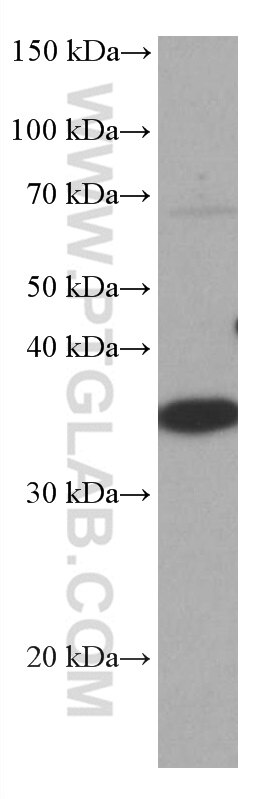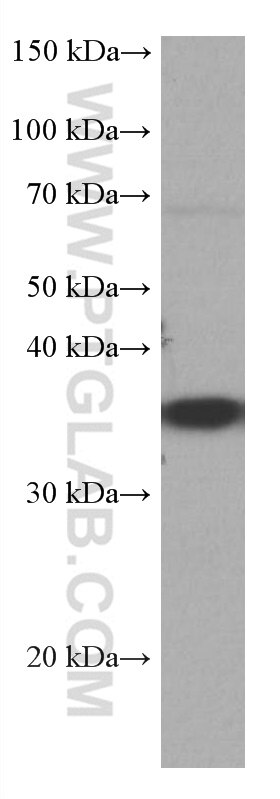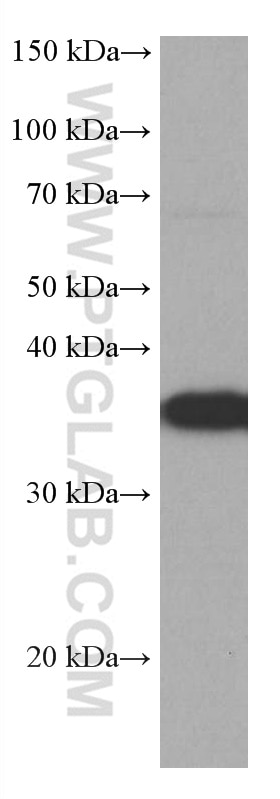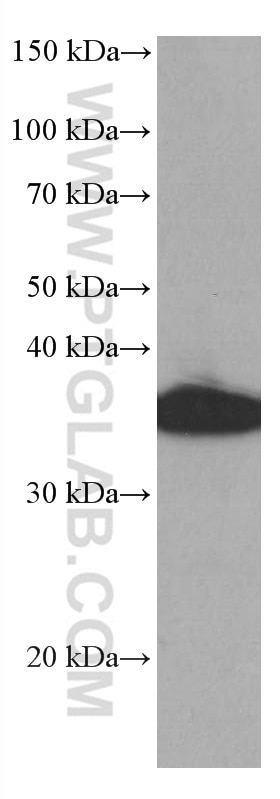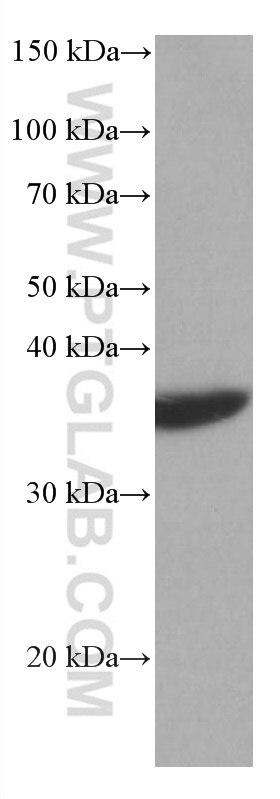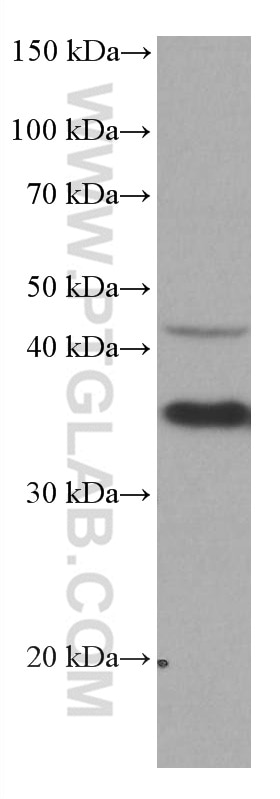Validation Data Gallery
Tested Applications
| Positive WB detected in | HEK-293 cells, HeLa cells, HSC-T6 cells, Jurkat cells, NIH/3T3 cells, RAW 264.7 cells |
Recommended dilution
| Application | Dilution |
|---|---|
| Western Blot (WB) | WB : 1:1000-1:6000 |
| It is recommended that this reagent should be titrated in each testing system to obtain optimal results. | |
| Sample-dependent, Check data in validation data gallery. | |
Product Information
67035-1-Ig targets CRK in WB, ELISA applications and shows reactivity with Human, mouse, rat samples.
| Tested Reactivity | Human, mouse, rat |
| Host / Isotype | Mouse / IgG1 |
| Class | Monoclonal |
| Type | Antibody |
| Immunogen | CRK fusion protein Ag28793 相同性解析による交差性が予測される生物種 |
| Full Name | v-crk sarcoma virus CT10 oncogene homolog (avian) |
| Calculated molecular weight | 34 kDa |
| Observed molecular weight | 34 kDa |
| GenBank accession number | BC008506 |
| Gene Symbol | CRK |
| Gene ID (NCBI) | 1398 |
| RRID | AB_2882350 |
| Conjugate | Unconjugated |
| Form | Liquid |
| Purification Method | Protein G purification |
| UNIPROT ID | P46108 |
| Storage Buffer | PBS with 0.02% sodium azide and 50% glycerol , pH 7.3 |
| Storage Conditions | Store at -20°C. Aliquoting is unnecessary for -20oC storage. |
Background Information
CRK is a member of an adapter protein family that binds to several tyrosine-phosphorylated proteins. CRK has several SH2 and SH3 domains (src-homology domains) and is involved in several signaling pathways, recruiting cytoplasmic proteins in the vicinity of tyrosine kinase through SH2-phosphotyrosine interaction. The N-terminal SH2 domain of this protein functions as a positive regulator of transformation whereas the C-terminal SH3 domain functions as a negative regulator of transformation.
Protocols
| Product Specific Protocols | |
|---|---|
| WB protocol for CRK antibody 67035-1-Ig | Download protocol |
| Standard Protocols | |
|---|---|
| Click here to view our Standard Protocols |
